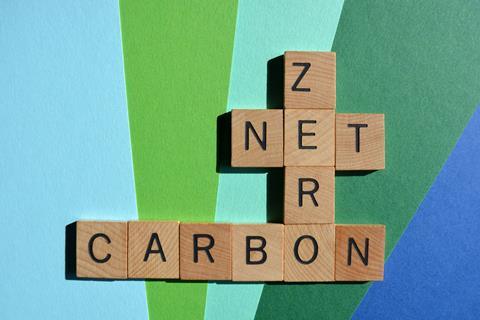Slow progress over the last four years means firms are now falling behind planned trajectory
Construction firms need to reduce their carbon emissions twice as fast as they are currently to achieve a target agreed across the industry, according to the UK Green Building Council (UKGBC).
Slow progress over the last four years means the built environment is now “significantly off-track” from the decarbonisation trajectory required under the UKGBC’s New Zero Whole Life Carbon Roadmap.

Between 2018 and 2022, carbon emissions from the UK built environment fell by 13%, significantly less than the 19% needed to meet the UK’s net zero pathway, new UKGBC analysis has found.
It means that the industry now needs to nearly double its speed of emissions reduction over the next two years to meet a target set for 2025 under the roadmap.
The research also found that embodied carbon has fallen by just 4% since 2018, less than a quarter of the pathway target.
UKGBC chief executive Smith Mordak said the findings clearly show the UK industry is not moving fast enough.
“The timeline to meet net zero cannot extend,” they said.
>> See also: UKGBC proposes bringing forward minimum EPC ratings for UK homes by seven years
“We must now reduce emissions twice as fast as we have been to get back on track. The later we leave it, the harder it will be and the greater the missed opportunities for tackling interconnected nature and social crises.
“Industry and government need to work hand in hand to create decisive change and bridge the emissions gap that sets us on path to deliver net zero.”
The UK Net Zero Whole Life Carbon Roadmap was published at COP26 in Glasgow in 2021.
Co-created with over 100 organisations, including government departments, it sets out the actions which would need to be taken year-on-year to meet the government target of getting emissions down by 78% by 2035.




























No comments yet